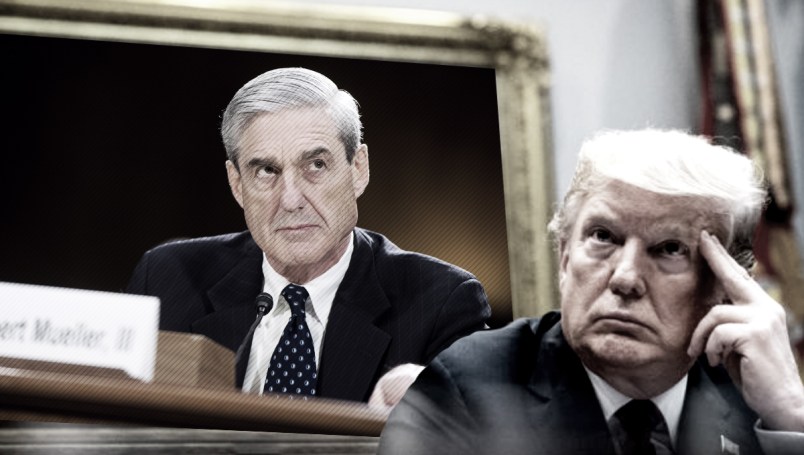I wanted to flag your attention to a really important opinion column that appeared yesterday in the Times. It’s by Jed Shugerman, a law professor at Fordham. Shugerman gets into a number of points about the collusion portion of the Mueller Report that I’ve been trying to make sense of myself. To put it more specifically, I’ve been trying to make sense of the disconnect between the Report itself and its media portrayal. Trump’s campaign didn’t just collude. They conspired and coordinated with Russia. And Mueller proves it.
The key issue, as Shugerman explains, is that the investigators were explicitly applying a “reasonable doubt” standard to the evidence. They specifically and explicitly make clear multiple times that that was the standard they were applying. That may sound like some technical, narrow point. But it’s not. It makes a huge difference for the conclusion.
That is of course the correct standard to apply for criminal prosecution where we demand near certainty of guilt to deprive someone of their liberty. (Shugerman also argues that the investigators misconstrued the definition of “coordination” under federal law. But let’s set that aside.) But it’s not the proper standard for a common sense, best likelihood understanding of what happened. Preponderance of evidence is the standard for that. That is the proper standard for the political realm and specifically for impeachment. By that standard they demonstrated it over and over.
Shugerman notes that when Ken Starr submitted his report twenty years ago, he specifically set aside the “reasonable doubt” standard and applied a much lower standard of “substantial and credible information” because he was producing a brief for impeachment.
Here’s his passage …
Contrast the Mueller report with the Starr report on President Clinton, which framed itself as an impeachment referral, not a prosecution decision, and thus avoided having to reach the more daunting standard of proof beyond a reasonable doubt. It applied a lower standard of “substantial and credible information” and titled each of its 11 grounds of impeachment in these terms, even when they invoked (or evoked) the criminal conduct of “lying under oath” and “obstruction of justice.”
The Mueller report, holding itself to the higher standard, concluded that it did not find proof beyond a reasonable doubt of criminal conspiracy with Russia. It also offered an explanation: Lies by individuals associated with the Trump campaign “materially impaired the investigation of Russian election interference.” Witnesses deleted emails and used applications with encryption or deletion functions, which also thwarted fact-finding. Part II of the report on obstruction explains why Part I may have fallen short of such a high burden.
Now, the last thing we want to do is make Ken Starr and his corrupt investigation a model of anything. But it is an instructive contrast. By any reasonable standard of ‘what seems to have happened’, Mueller unearthed lots of evidence of collusion. Equally important, as Shugerman also notes, Mueller recounts numerous instances in which the President’s or his associates’ lying or refusal to cooperate stymied investigators’ ability to get critical evidence. In other words, a lot of the obstruction – or in some cases, just holding out and refusing to cooperate – seemed to worked. That is another reason why Congress needs to pursue the various threads Mueller’s team wasn’t able to untangle or yank free.
Of course, as a secondary matter, this further vitiates Bill Barr’s claim that the lack of any underlying crime makes an obstruction charge all but impossible. That is secondary though. We’re still operating under the weight of Bill Barr’s mendacious spin. Mueller’s probe did prove collusion between the Trump campaign and Russia, actually multiple instances of it. The fact that they didn’t think they had enough evidence to prove it beyond a reasonable doubt is significant for prosecution but not for the much more important public accounting, our understanding of what happened and what the consequences should be. The President repeatedly and flagrantly obstructed justice because he knew he and his campaign were guilty, as they were. He continues to lie about it now, repeatedly claiming the report said “no collusion” when any reasonable read of it says quite the opposite.






